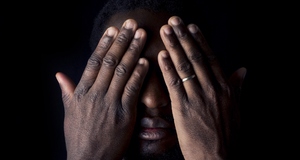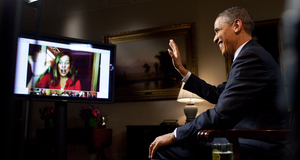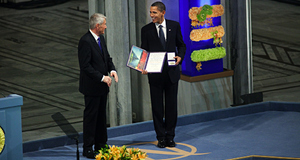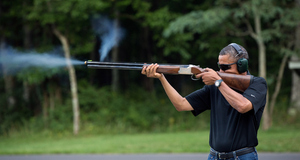The Obama PresidencyThe Myth of Obama's Post-Racial Presidency: Why Barack Obama's Election Didn't End Racial Inequality in AmericaRace-Neutral Policy in the Housing CrisisWhile the disproportionate impact of the Recession called for additional aid and programs to non-white families, President Obama addressed the housing and economic crisis with race-neutral policy. The Obama administration failed to attack structural inequalities and address the growing wealth gap between white and black Americans. Coming into office, Obama was under high pressure to handle the crises in a prompt and efficient manner. The media hampered down on the high foreclosures and unemployment rates during the stimulus and recovery bills discussion. The outlets aimed to cover the sad and desperate experiences of Americans, but conveniently left out the statistics regarding the higher unemployment rates among blacks and the greater devastation caused by the subprime mortgage crisis on people of color. During a time where Americans elected its first non-white President, denials of structural inequality and racial privilege were at their heights. 23 Indication that a societal shift away from race has not occurred with the election of Barack Obama is seen in his inaction towards race-targeted programs for fear of loss of political capital. Obama resistance to embrace the black, Latino, or Asian agendas is salient with post-racial arguments, that race should not factor into government action. It also pacifies white liberals and conservatives who deny evident structural inequalities. Structural inequalities can be defined as, “systemic material, social, political, and economic factors that individually or in combination facilitate individual and group disadvantages.” When combined with predatory lending practices structural inequality manifested into the foreclosures of black Americans’ homes and the loss of their wealth. The Homeowners Stability and Affordability Plan within the American Recovery and Reinvestment Act provided race-neutral solutions to the subprime mortgages crisis.In this instance, and many others, President Obama influenced major public policy acceptable to the Democratic Party by addressing the needs of minority homeowners in combination with the needs of white homeowners. Obama avoids developing programs or policies that directly benefit racial minorities because it would cost him political capital among the white majority.24 Currently, white Americans continue to reap the advantages of structural inequality. They remain largely unaware of the wealth gap due to their privilege. The salience of the Obama Administration with non-racial action gives post-racial proponents cause to further push a colorblind agenda. Obama and the Politics of RacePresident Obama’s hesitation or resistance to set an agenda focused on correcting racial disparities likely resulted from two publicized race-related events. The first event occurred during the 2008 presidential race and involved controversial statements by his long-term mentor and friend, Reverend Jeremiah Wright. The second took place shortly after he entered office in 2009 and came to be known as the Gates Affair. The Reverend Wright ControversyDavid Ikard uses the work of James Baldwin, The Fire Next Time, to provide context for the media’s portrayal of Obama’s relationship with Reverend Wright and the black activist church Trinity United. The Fire Next Time evaluates the political influence of individuals such as Malcolm X and Elijah Muhammad on black and white Americans. He agrees with many of the assessments by black political figures that the white dominant culture manipulates power in its favor. He states that whites evaluate white revolutionary action differently than they evaluate black revolutionary action. The double standard of allowing whites to violently riot while insisting that blacks only engage in non-violent demonstrations is due to their own desires to not have their images or property threatened. Using Baldwin’s arguments as a backdrop, Ikard demonstrates how the media’s defense of white privilege scapegoated Revered Wright.25 Given the evidence, I agree with his theory. Ten days after Obama won both the Ohio and Texas primaries, ABC News aired igniting videos of Obama’s longtime pastor, Jeremiah Wright. One of the clips that was repeatedly looped on cable news outlets showed the reverend stating, “The government gives African-Americans the drugs, builds bigger prisons, passes three-strike law, and then wants us to sing ‘God Bless America’? No, no, no, not ‘God Bless America,’ God damn America…. Barack knows what it means to be a black man living in a country and a culture that is controlled by rich, white people, Hillary ain’t never ben called a nigger.”26 These comments, coupled with Obama’s two decades long association with Wright, threatened the post-racial imaged crafted by Obama’s campaign handlers. Obama became the first viable black candidate because of his multifaceted appeal to both black and white liberals. The ‘Obama for America’ top campaign pollster, Cornell Belcher, constantly gauged white Americans’ aversion to race in order to deactivate the impact of racial conservatism on voter choice. The campaign recognized that the majority of the country is racially resentful as a result of our history and certain predispositions would have to be neutralized for a successful win. The campaigned employed a race-neutral strategy to gain the support of white working-class voters in addition to its strong support by black voters. Rather than emphasize the significance of a black man becoming president, campaign handlers sent the message that “An extraordinary, gifted, and talented young man who happens to be black can be president.”27 This message aligns perfectly with post-racial theory. The mainstream media adheres to post-racialism with its refusal to acknowledge broader implications of race. Large outlets often do not differentiate between the racial positions of whites and nonwhites, meaning they do not acknowledge racial privilege. Structural inequality based on race is rarely discussed and reactions by people of color to racism are often viewed as actual acts of racism. Wright’s statements were implicated as racist, situating whites and blacks in similar social spaces and implying that whites could also be victimized by race. Obama reacted to these sentiments by legitimizing them. He distanced himself away from the reverend and condemned his views in his ‘A More Perfect Union’ speech given at the Philadelphia Constitution Center. He stated, “But the remarks that have caused this recent firestorm weren’t simply controversial. They weren’t simply a religious leader’s efforts to speak out against perceived injustice. Instead, they expressed a profoundly distorted view of this country- a view that sees white racism as endemic… As such, Reverend Wright’s comments were not only wrong but divisive, divisive at a time when we need to come together to solve a set of monumental problems-two wars, a terrorist threat, a falling economy, a chronic health care crisis and potentially devastating climate change; problems that are neither black or white or Latino or Asian, but rather problems that confront us all.”28 He then went on to compare the racial stereotyping of black men by his white grandmother as similar to Wright’s protest of structural racism. He equated the “bitterness and bias that makes up part of the black experience in America” to “ a woman who once confessed her fear of black men who passed her on the street, and who on more than one occasion has uttered racial or ethnic stereotypes that made me cringe.”29 In order to save his campaign and continue his hope for election, Obama made remarks that were not only damaging personally to Wright, but also to racial discussions in America. He legitimized the belief held by whites that blacks’ reactions to racism are equivalent to racism itself, and disregarded differences in power between the two racial groups.30 The corner Obama was backed into by the American media made him choose between not harming the reputation of a man he deeply admired and being elected to an office were he could make a difference for all Americans. His choice of the latter would soon haunt him in the summer of 2009. The Gates AffairHenry Louis Gates Jr. was a professor and member of the Harvard faculty who lived in Cambridge, Massachusetts. Upon returning from a trip, Gates encountered difficulty with opening the front door to his house. One of his neighbors, watching a black man struggle with opening a door, assumed he was breaking in and reported ‘suspicious activity’ to the police. The police promptly arrived and placed Gates under arrest for disorderly conduct after he allegedly displayed ‘tumultuous’ behavior having been interrogated about breaking into his own home. Gates was held for four hours in the police station, and five days later national attention swirled around the controversial event. The charges were eventually dropped but the conversation of racial profiling continued. 31 At a press conference on the president’s healthcare reform, Obama was asked a question about Gate’s arrest. Obama personally knew the professor and gave a response seemingly outside of his previous stance of racial neutrality. He responded, “Now I don’t know, not having been there and not seeing all the facts, what role race played in that, but I think it’s fair to say, number one, any of us would be pretty angry; number two, that the Cambridge police acted stupidly in arresting somebody when there was already proof that they were in their own home; and number three, what I think we know, separate and apart from this incident, is that there is a long history in this country of African-American and Latinos being stopped by law enforcement disproportionately. And that’s just a fact.” 32 Prior to this statement the attention of the event was subsiding, afterward the fuel of the president’s comment reignited it. Despite Obama’s careful creation of his response, the media portrayed his remarks as opposing the arresting officer and siding with Gates. Obama strategically placed the issue of racial bias within the criminal justice system away from the incident itself in his reply; that separation was then closed by accusations of the president suggesting racial profiling was the cause of Gate’s arrest. The mere mention of race by Obama causes frenzy among the media, so much so that a very cautious and planned statement is considered the speech of a race monger. The political firestorm surrounding Obama and the Gates Affair completely disregarded the neutrality of his statement. He never actually stated that the arresting officer or the Cambridge police were racist. He said that they ‘acted stupidly’ but that was in reference to the officer arresting a person who had proven that he was really in his own home. His point about race and its implications in the criminal justice system was ‘separate and apart from this incident.’33 All of this actually complies with his race-neutral approach. Those who insist that Obama has prompted a societal shift past race do not provide a credible explanation or reason for why his remarks on racial issues remain incendiary. Specifically on the issue of racial profiling, his remarks bear a similar resemblance to those of his predecessor George W. Bush. In February of 2001, President Bush stated, “[racial profiling] It’s wrong, and we will end it in America. In so doing, we will not hinder the work of our nation’s brave police officers. They protect us everyday- often at great risk. But by stopping the abuses of few, we will add to the public confidence our police officers earn and deserve.” 34 Here, Bush acknowledges that racial profiling is wrong, but doesn’t indicate that all police officers are guilty of it. Instead, he hails the majority as brave and depicts the issue as an abuse that detracts from the confidence of the public that the police have rightfully earned. The subject of race or the abuse of power against racial minorities doesn’t solicit the same inflammatory response by the media or public when brought up by a white person. Obama is held to a different standard than previous presidents because he is black. Black and white Americans alike believe that he is more in favor of African-Americans, simply because he shares similar ethnicity, despite evidence to the contrary. The social construct of race is so deeply woven into our society that those on opposite sides of support for and against Obama attribute a significant portion of their stance to his race. The racial politics that played out in the Wright controversy and the Gates affairs, along with other events since then, has contributed to Obama’s shyness of race-targeted policy while also demonstrating the need for it.Continued on Next Page » Suggested Reading from Inquiries Journal
Inquiries Journal provides undergraduate and graduate students around the world a platform for the wide dissemination of academic work over a range of core disciplines. Representing the work of students from hundreds of institutions around the globe, Inquiries Journal's large database of academic articles is completely free. Learn more | Blog | Submit Latest in Political Science |


















